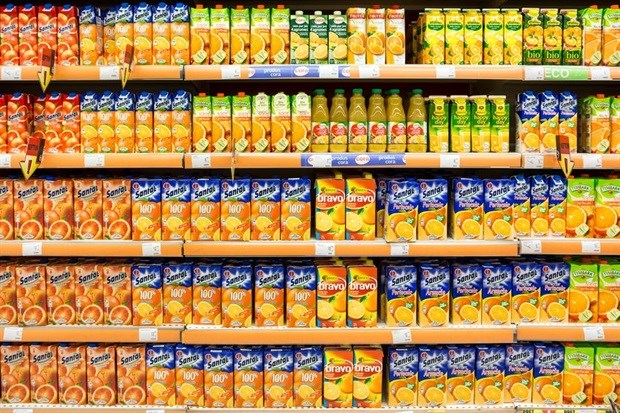Despite campaigning for over a year to get South African consumers and companies involved in recycling liquid packaging cartons, Mpact Recycling and Tetra Pak SA say that many people remain unaware that juice and milk cartons are now recyclable.
It’s been around a year since Mpact Recycling opened its R46-million liquid packaging recycling plant at their Springs Paper Mill in Johannesburg. The state-of-the-art facility has the capacity to recycle 24,000 tonnes of used liquid cartons per year, however the plant is not yet running at full capacity.
“Once the plant is able to run at full capacity, this could equate to a saving of 65 240m3 of landfill space, as well as a saving of approximately 11,400 tonnes of carbon emissions,” says Donna-Mari Noble, communications manager at Mpact Recycling. "If we can reach capacity, it will mean more cartons being recycled, so we’re calling on the South African corporate industry and consumers to help us. We need more used cartons – too many are still being disposed of in our precious landfills, instead of being recycled.”
Agripa Munyai, sustainability manager for Tetra Pak SA, says that liquid cartons have previously been a contributor to waste in South Africa’s landfill sites. “We are now left with the challenge of educating South Africans to recycle these products, which often take up half of our weekly grocery shopping baskets,” he says.
“Items such as juice, custard and long-life milk cartons are made from a mix of mostly paperboard, and very thin layers of plastic and aluminium – referred to as polyalu – with all these layers being important and necessary for food protection.
It is through Mpact’s plant which uses technology that allows for the paperboard to be stripped away from the polyalu, and then utilised in the manufacture of other paper-based packaging. This is why we are partnering with Mpact Recycling to reiterate the carton recycling message to consumers and companies that use these types of packaging,” Munyai adds.
How and where to recycle cartons
It is estimated that 50,000 tonnes of liquid packaging is consumed per year in South Africa, and Mpact is hoping to improve collection of this material.
“Whether you finish a carton of milk at breakfast or enjoy a box of custard for dessert, place your flattened, used container into your nearest recycling bin, whether at home, school or work. This way South Africans will not only be doing their bit to keep the environment clean, but will also be helping to continue creating sustainable job opportunities throughout the recycling value chain,” says Noble.
"For those that just want to dispose of their cartons – they can do so in any of the 2,000 Ronnie banks located countrywide. Alternatively, recycling liquid packaging also provides an additional revenue stream; along with their plastic bottles and cardboard boxes; for people who collect waste and sell it to any of our Mpact Recycling operations for payment. It’s a win-win-win situation.”
Consumers can deposit their long-life milk and juice cartons in their nearest Ronnie bank at schools or community centres. Information on drop-off points is available at www.recycleyourcartons.co.za. Companies can also get involved at a pre-consumer level, where carton is available at source. Noble encourages brands to contact Mpact about partnering in this regard.















































